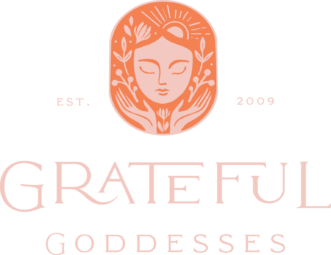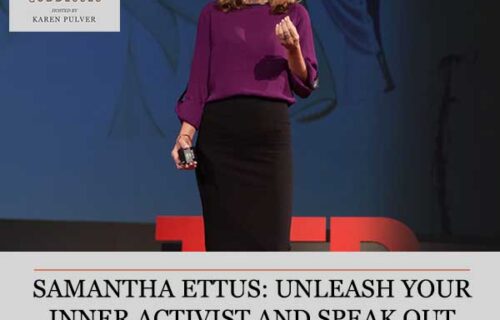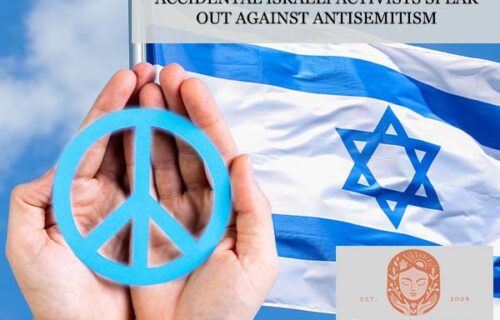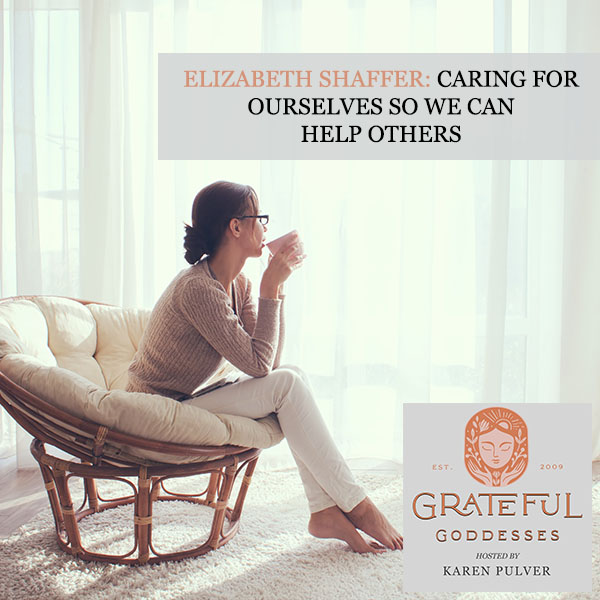
Elizabeth Shaffer: Caring For Ourselves So We Can Help Others
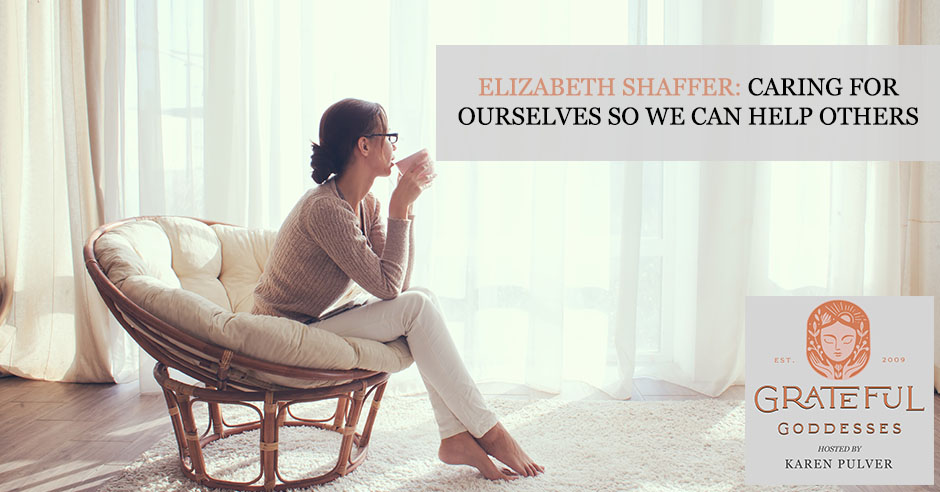
When we take care of ourselves, we are better prepared to take care of others. The show’s guest today is Dr. Elizabeth Shaffer, an Occupational Therapist at Therapeutic Innovations International. Dr. Elizabeth talks with Karen Pulver and Goddesses about how parents can care for their special needs kids without overwhelming themselves. The key is to STOP: stop, take a breath, observe, and perceive. When we STOP, we can examine how we can deal with stressful situations in a more productive way while protecting our own mental and physical health.
Dr. Shaffer uses Western and Eastern medicine to look at things more holistically. Being able to let go, surrender, and more mindful of our actions will help us to be better parents while helping the children as well. Catch Dr. Shaffer in this episode as she expresses her love for creating tribes for people, like the Goddess Tribe, to connect, learn, and grow.
—
Watch the episode here
Listen to the podcast here
Elizabeth Shaffer: Caring For Ourselves So We Can Help Others
Helping Parents of Special Needs Kids
I’m Dr. Elizabeth Joy Shaffer. As an occupational therapist, mother and woman, it is so important for women to connect because one of the things I focus on when I’m helping parents, especially moms, is how to reconnect to themselves and that woman inside of us. I feel sometimes as women, when we are parents, we focus on the kids and we forget about ourselves and our connection with other women. I love this platform. To me, it feels like a safe space where we can come together and feel open to share whatever we want to share with like-minded and open-minded women who are also on that path of growing greatly. I highly recommend joining the tribe of Grateful Goddesses.
—
Welcome everyone to the show, whether you are joining us in the morning, afternoon or evening, we are so glad that you are here. Let’s talk, Featured Goddesses, about self-care. What is something you have done to take care of yourself, Lara?
I had taken about 40 minutes to wake up. I sit in my bed and I make the time every single morning depending on what my day looks like. I set my alarm earlier so I can take my time to sip my coffee. It’s my treat of the day. I put real cream in it and I like to savor this coffee. I take my time or read the news and read anything I can in my step before I get into bed and I never start my day wretched. That’s my self-care.
How about you, Alyssa?
For forever, I have been waking up at the crack of dawn and having a leisurely morning like you, Lara. This is unusual to me, I find myself sleeping in. Being an empty nester now, the demands on my time at the crack of dawn are limited. We are doing this on a Saturday. I slept in and made my way slowly to my kitchen for the coffee that I also savor every morning. I read the paper and then I have been taking long showers. As I have talked about on the show, my showers are meditative and they are getting longer. I’m not sure what my water bills are. I always start Karen, thanks to you, with this dry brush that you hooked me on to by buying me one. Sleeping in and long showers are how I have embarked on some new self-care rituals.
That’s great. Alysha?
It’s a little hard about self-care in the morning because I’m two hours behind so I’m just waking up. I was scrambling. I’m going, to be honest. There wasn’t much in the way of self-care. Self-care is honestly being with all you amazing women. I feel the self-care whenever I can connect to people. I feel that that’s my greatest self-care.
My self-care was every night, I’ve got into this good routine ritual of filling up my water bottle. I fill it up at night and put it in the fridge so that it’s cold. In the morning, I drink it. I try to drink two of these a day. Another self-care ritual that I love to do is by our Featured Goddess, Lara. She does amazing Glow Fit workouts. I have my 3-pound weight but you can do any type of weight that you want. For me, I find that my body sometimes is screaming, “Don’t run. What are you running and pounding your body for?”
In the compound fitness classes that I do on Glow Fit by Lara, I’m not promoting her because I love her and she’s a Featured Goddess. I truly love these classes. They work on all the areas of your body. She has meditation in there as well and stretching. That’s one of my self-care. We talked about mind, reading, body, all the different workouts we can do and spirit, perhaps meditating. We say that some of us here are empty nesters. We can do these things so easily. We would have the time. When our kids were younger, could you do those things, Lara and Alyssa, what you are doing now? Could you sleep in? Could you take a long shower?
No. I’m older more independent, yes, but with little ones, never. If you took a shower, that was a luxury.
Education and information can change lives. Share on XI’m going to add that yes, it was hard to add the self-care but I always did because it was the commitment I needed to keep to myself to bring my best self to my family and whoever was around me. I always set my alarm early to make sure I exercise. I’ve got that peaceful time in the morning. It’s hard. Who wants to get up earlier before starting your day? Every time, as soon as the alarm went off, it’s like, “What am I doing?” Every time I went through the rituals of working out and having my coffee before everyone woke up, I was always happy. It’s ingrained in me and I always push myself even with the busyness of the kids. It pays off.
I would try and do things the night before. When the kids were asleep and I’ve finally got them to bed, I would then set everything up. I put my workout clothes out so that I could just put them on. I fill up my water bottle. With my shakes, I would even pour all the dry stuff in the night before so all I had to do was add the ice, liquid and blend it. It’s hard to take care of yourself, especially when your kids are young and if your kids have special needs and challenges for sure. Our guest, Dr. Joy Shaffer, specializes in helping families, moms, parents and children to navigate through those challenges so that you can put your oxygen mask on first.
Dr. Elizabeth Joy Shaffer is a mother, therapist and advocate for children with neuro diversities. Her passion is helping parents and children through her programs, which combine traditional, Western and ancient Eastern practices playfully and sustainably to promote wellbeing. She loves sharing the life lessons learned as a mother and a Foreign Service spouse living in seven different countries. She believes that education and information can change lives.
She says, “One must think outside of the box when it comes to supporting the children who will never conform to living within the confines of a box. Love has the power to heal, calm, change and unite. Thinking outside of the box and loving ourselves and others unconditionally can change the world.” Her passion has always been to empower children and their parents to overcome or adapt to challenges impacting their health, wellness and roles, the student, parent, playful child, etc.
Together, she can identify and create a plan to address you and your child’s specific needs. She utilizes various approaches to support your goals including HeartMath, Cognitive Behavioral Therapy CBT, Acceptance and Commitment Therapy, ACT, mindfulness-based practices and others. She incorporates mindful-based practices with other evidence-based health-promoting approaches to promote stress reduction, self-regulation and wellbeing for parents and children. Information tools and practices address the unique needs and challenges encountered with highly sensitive children with autism, ADD, ADHD and other high or specific needs.
—
Welcome, Elizabeth, to the show.
Thank you very much, Karen. I’m excited to be here.
Thank you for joining us from Estonia. You have had a lot of the day to practice some self-care. What are some rituals or activities that you have been able to squeeze in? Your kids are younger, too.
I always get up and do yoga, whether it’s ten minutes with Tara Stiles or Yoga With Adriene. I get to do half an hour. Yoga is my go-to in the morning. As Lara said, the first thing in the morning, I have to have that time for me. I found doing fun things with my kids is more enjoyable, instead of doing things together. We went out and did geocaching because it was a beautiful day. We’ve got to explore parts of the city that we had never done before. It was fun because we are in lockdown here so you can’t do too much. Being around nature and exploring new places to me, doing new things and being in nature is self-care, too.
You do talk a lot about putting on your oxygen mask first. I know it’s such a cliché but it is so true because if you can’t take care of yourself and put yourself in that mind space and that mind-body-spirit connection, how can you take care of others? Can you elaborate more on that?
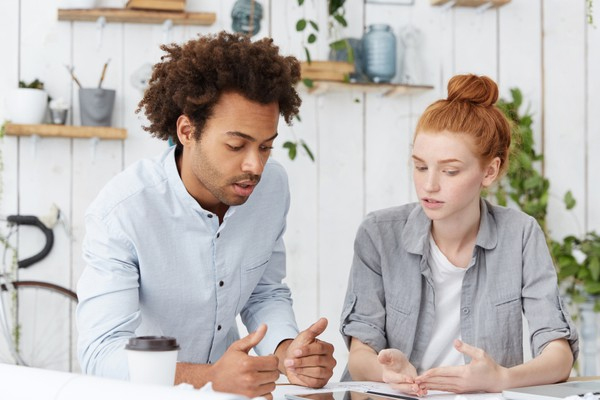
When I hear of the oxygen mask, I think of it in two ways. The analogy is if the plane goes down, put your oxygen mask on first before you put it on your child. I look at that in two ways. One is you can’t save other people unless you save yourself first, especially with mothers and women. One is you can’t give to other people when you haven’t given to yourself. For years, I gave from an empty bucket because my kids did have a lot of needs and required a lot of attention and time. I didn’t realize over the years of meeting their needs, not meeting my needs that I was depleted and coming from nothing.
When I hear about the oxygen mask, I think of, “Do I have enough energy to give? Am I giving from a surplus or am I giving from an empty bucket?” That’s what I help people with now is how do we get back to ourselves so we are not giving from what we don’t have, which I feel like a lot of mothers do. The second part is the oxygen part. How many times do we stop and breathe? I like that analogy because, throughout the day, I practice the thing called STOP. I observe, Stop, Take A Breath, Observe and Proceed. Breathing is so important to get us back at the moment. Like Lara said with meditation, yoga and breathing. I look at that in two folds, how important it is to make sure we are filling our buckets and we are stopping and breathing in those moments of life.
You mentioned that you have two children and they have special needs. Can you share with us about that and how you started your practice?
The journey of working with kids with special needs started well before I had my own. I became an occupational therapist back in 2001. At that time, I worked primarily with children. My firstborn was born in 2008. We knew early on that he had some challenges so he started therapy at fifteen months just because I worked in early intervention and I knew the signs. My other son who is fifteen months of separation in age also ended up having some challenges. Sometimes, people look at the challenges but they also have some amazing little grow so it was challenging as a parent because of their challenges but yet, they have amazing abilities and trying to hone in on both of those.
My parenting journey is raising these two amazing kids who also had some challenges. Not just helping them overcome those challenges but helping them put on their strengths. It takes a lot of work. Parenting in general takes a lot of work. Knowing this journey that I went on as a parent and as a therapist, knowing what kids needed, and then as a child who also was a little bit borderline ADHD, those combinations, I decided to create a different approach to helping families.
Lara has some questions for you about your practice.
It was so inspiring to know that you combine the Western and the Eastern philosophies to teach the families how to go about the integration of these two things. Could you explain that to us?
I feel like my training in the medical profession and educational profession that’s more Westernized, we focus on the problem. It’s problem-based and it’s focusing only on one area. Families and kids were a combination of so many things. One challenge is seen in many areas. I like to look at things more holistically. Through my own journey, I have sought the wisdom of Buddhism. I joined the Buddhism society when we were living in Ottawa. I have been doing mindfulness since 2006. I love the attitudes, mindset, approaches and way of looking at life through that lens. I feel like that lens of the teachings of mindfulness and the practices but also the attitudes of letting go, non-judgment and surrender can help us as parents. If we practice some of the Eastern traditions, we could let go of a lot of the challenges and struggles that we face. That’s why I like to merge the two.
That’s an amazing thing to be teaching people. Everyone is a little more open now to mindfulness because they hear so much about it. Kids are beginning to learn mindfulness techniques in school, which is incredible. It’s timely. It’s taken a while for the two to connect. It’s amazing.
I find that, too, with preschool kids that I teach. In the morning, when you talk about breathwork, they come in and they are all excited. They sit down and they are everywhere. I’m like, “Close your eyes. We are butterflies and we are landing.” We are blowing up the candles on a birthday cake just to get grounded and centered. It is so important to start your day. Alyssa, do you have a question for Elizabeth?
I do. I have been learning a lot about the mindful classroom as well. I have a good friend who has been studying it and working with early childhood. It’s so amazing. My kids missed the boat on that. They have now grown adults and that didn’t exist in the schools that my kids attended. Are there other techniques or methods, not so much that schools can be doing but that we should be doing with our young children, whether they have challenges or not? Things that those young children now do that we, with older kids, didn’t do. Things that are more part of your practice and should be part of parenting. Along those lines, you mentioned that your kids have the benefit of you being a professional therapist and knowing what signs to look for. I can’t imagine how much they benefited from early intervention and techniques for helping them along the way. What can parents be looking for or signs, especially as new parents that they are not thinking of?
Western medicine focuses on the problem and Eastern teachings look at things more holistically. Share on XIt comes down to, “What do I want to be as a person to show my kids what I would like them to be?” As parents, we want to model for our kids, whether they have challenges or not. I have had parents say, “I don’t know if I should work or I don’t know if I should do this because it will take time away from the kids.” I always said, “Do you want your child to see the value of having fun and it’s good to go and do things you enjoy or do you want to show them that adulthood is serious, stressful and all work?”
As parents, when we are looking at what we want to teach our kids or help our kids with, what do we value and what do we want to show them the amazing things that they can be through us? With that, mirroring what I am if I’m happy, my kids are happier. That whole, if mom’s happy, everyone in the house is happy. It starts with us. If we can be happy, that helps our kids because why I started on this journey going and helping parents is because I found I was in such a state of fight or flight and stress that I was getting frustrated and angry a lot and I didn’t want to be this way.
When I was faced with challenges, I was reacting in a way that I didn’t want to react, and then I saw my kids reacting in that same way, not being able to handle those challenges. That’s why I learned, “I need to start learning and embracing it.” That’s where the Eastern traditions came in with meditation, breathing and mindfulness. I was at a better place and more connected internally so then when they needed my help, I could help them.
Working with kids and bringing that mindfulness comes down to being in the moment. I take opportunities whenever I can with my kids to teach them those life lessons, give them those values and turn off the TV. With electronics and COVID, it has been terrible. I’m sure a lot of people can relate to this but taking those moments to go out and enjoy the birds, I always point out cool things that I see and help them to be that observer. We learn a lot from our parents. My father loved adventures and going to new places.
When I was young, we would never go the same route when we were going on vacation or anywhere. I’ve got that sense of adventure. With parents, when looking at what they can teach their kids, it’s that adventure and love of life because that’s what I learned from my dad. Every challenge or opportunity, I look at the adventure side of it. Having that fun as a parent is one of the best things we can do because I didn’t have fun for years. I thought it was a job and a chore. Bringing fun into parenting is so important, especially for kids with special needs that have challenges or are stressed a little bit more. Having fun and less stress are two important things.
I know Alysha, our Featured Goddess, lives in the moment. She’s definitely a present just-be person. Can you share some of your thoughts and questions that you might have?
Elizabeth, I love how you are looking at it. It’s like, “How can parents look at these challenges?” There are gifts within the challenges. It’s so powerful to empower the parents to embrace what it is as special needs. I don’t mean to sound ignorant or anything along those lines but the question that keeps coming up to me when we are talking about special needs is the scope of what special needs is. I look at anybody that could be having a challenge in the sense that you could incorporate this work with anybody. My thing is there is more of a niche within the special needs. If you could elaborate a little bit more about the parents that you are looking for because I feel like you can help everybody.
I don’t want to discriminate. I am all about inclusion and diversity. I don’t like to leave anyone out because I do feel a lot of this is important. I do feel that a special population of parents raising kids with autism and ADHD is a niche that needs a little bit more support because they tend to have a little bit more stress because of some of the challenges their kids have. I have always been called to be a voice for those kids that can’t be the voice for themselves. Through my experiences, both personally as a child and as a therapist, these kiddos have such amazing abilities. They come into the world seeing things and being able to do things that maybe others can’t but because of the special skills that sometimes their sensitivity is more challenging for them.
These kids need parents that are grounded and calm more than others. Everyone needs a calm, grounded parent. Children with autism are becoming more and more prevalent, therefore, we need to help these kids in another capacity more holistically. That’s why I focus on kids with autism and ADHD more. I’m open to supporting everyone but these kiddos need another level of support. To explain autism, children with autism tend to have delays in communication. They are more sensitive to sights, sounds, touch and to certain things, which can make it overwhelming. They are highly sensitive, they can be overwhelmed quickly and they can be under more stress. A lot of these kids are under stress a lot because of their sensory systems being so alert and aware.
That’s why it’s also important for these parents to decrease stress. Kids with attention deficits notice everything, which is awesome but it can also be overwhelming when you are picking up everyone. Especially in people’s moods, kids with autism and ADHD are so sensitive to their environment, including our emotions. That’s why it’s important as parents to be in check with our emotions. Not to say we are happy but be happy and be less stressed because these kids pick it up.
Lara?
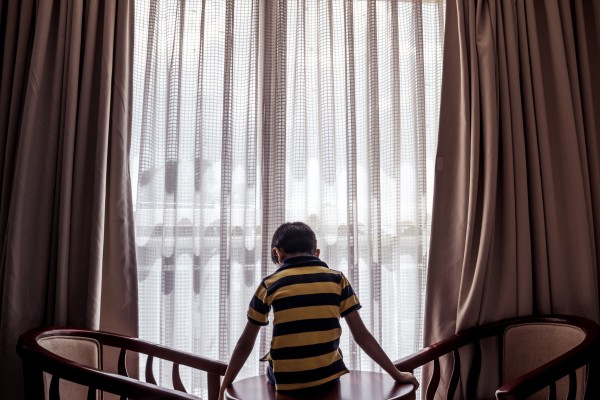
I wanted to respond to that because I have three children and my youngest is very sensitive to emotion. I noticed that as a young child when I was parenting her, my mood was noticed by her. Even if I didn’t realize I was raising my voice, as soon as I’m in motive and the other children didn’t react the same way to this. If my voice was raised, I would notice immediately that there might be some tears welling up in my daughter. She does have sensitivities to a bunch of different things and that’s so important to understand. You might have many children and your children react differently to that. That’s important to learn about in parenting.
The other thing I was going to say is when you are talking about the self-care that the parents need to be able to come to the table being calm, are you finding that they are bringing those methods that you are teaching them to have their children exercising, breathing and meditating as well? That holistic approach to the kids. One more thing because I do know that exercise has been shown to have the same benefits as many things like antidepressants. How do you integrate those tools for the kids as well or do you?
Thank you for giving the example of your daughter who could pick up your emotions before you even said it. That’s the thing. Our kids read our energy before they rate our actions. That’s another part of what I teach. There are so many levels that I work on because there are many levels to us with that energy that we bring. It is important to be mindful, “Is my energy in a state of frustration, anger or am I in a state of gratitude?” Like Grateful Goddesses when you are at those higher states, that gratitude and joy.
I do help parents to start to be mindful of that and shift to those higher emotional states. With parents, our kids learn from us more by what we do and not what we say. That’s why what I teach parents before they teach their kids is, number one, they need to have this as part of their toolbox, living this and practicing it, then they can teach their kids. Mindfulness is everywhere now and emotional intelligence, which is wonderful. I do have programs that they can give their kids as well but the focus is on the parents because this is where I feel is an unmet need to focus and hone in on the parents. When you said about medication, ADHD, some studies show that exercise and martial arts are as beneficial as stimulants for focusing. I like to show parents that other side. They can look at the more natural approaches to help.
I wish that I had your help. I, too, have a child who has ADHD. I’m curious though about helping to navigate through the system that is putting kids in this one way. What I’m referring to is the educational system. I struggled and became exhausted in trying to get her help. I had so many people say to me that she needed help but then when I went to try and get the help at the school, they said no. It wasn’t until high school that a guidance counselor took me aside and said, “She needs help.” I said, “I know she does. Help me to help her.” Finally, she got the help that she needed. It continued to increase her confidence and helped me to calm down but those were stressful years having to argue that my daughter needed this assistance. How do you help those families navigate through the system?
Thank you, Karen, because you pointed out one of the main stressors, which is trying to get people to acknowledge your mother’s instinct that something is wrong. That’s one of the things that the medical profession is getting better at because they realize the importance of early diagnoses and early intervention but it is hard, especially for kiddos that can cope better.
That’s exactly what the principal at her public school said. We had tutors for her all through school. She was getting good marks but she was taking five times as long to study or forgetting things. She allowed me to talk about her, by the way. She permitted me. The point is that all of these techniques that she learned have now helped her as a young adult. She’s doing great but it could have been done so much sooner. A lot of people felt like she was fine but she wasn’t.
That’s the hard thing because these kids are pushing so hard to do what other kids can do with a lot less effort. As parents, we are forced to think outside the box and not always depend on the schools for help. Schools are taxed with overcrowding in the schools and the number of kids in the classroom. The challenges that teachers have with all the different learning styles and the support is amazing. I’m hoping I see a change, especially the mental wellness and the mental health support in schools. In the Utopian world is a counselor for every grade and more of that wellbeing training.
We teach Math, reading and writing but we don’t teach wellbeing, and we don’t teach mental health and healthcare to our minds. I would love to see that because that would help all of our kids, those kids that are struggling on how to cope better when challenges come about integrated into the classroom. Also, there are classrooms that I have worked with. I have worked in the school system for a little bit. When they have done the mindfulness as part of their program and we have things called Brain Gym where you are doing these exercises that make your mind work in a certain way and it’s a mix of Tai Chi, the whole class is more focused, centered and organized.
For me, I would rather see schools add these two-minute things into their day to help everyone get organized and get the help that they need, not just our kids that need a little bit more because then we are isolating them. For parents, keep searching for answers and never give up, and you will find the answers, the help, and that person with the counselor that is there that’s in your child’s side and in their court to help them through these challenges. Now with the internet, there are a lot of programs for teens, especially that social-emotional piece and for the executive functioning.
We had to do outside testing, and then we brought that psychologist in for a meeting with the public school so that did help. I highly suggest parents out there keep going because we also got a lot of push back from some teachers in the school saying, “There are a lot of parents that are taking advantage of the system and saying that their kids have special needs to get more time on tests when they don’t.” The college scandal that happened. I’m curious about your thoughts on that. Also, Featured Goddesses, have you encountered that with any of your friends, kids or your own as well?
If you are happy then your kids will mirror your happiness. Share on XLet me answer the first part of that question first. There are always people in the system that’s going to take advantage of stuff and it’s a real shame. You can’t do anything about that but I hope that they don’t ruin that. I have never seen that where someone has claimed special needs to get something but I’m sure people have done that before. It’s a shame that it comes to that but I haven’t seen that. What was the second part of your question?
I wanted to know if anyone else here has seen that or dealt with that. I know for me personally, that was expressed to me by one of the principals. She said, “There are a lot of people trying to get extra time,” and that kind of thing. It’s important to keep going, persisting and having that determination that you know that your kid needs help. Don’t let anyone tell you that they don’t. Lara, what were you going to add?
I hope that the world is becoming more educated. I have a daughter who’s studying to become a Child Psychologist and her area is education for young children. Her hope and my hope as well from what I have seen over the years is that every child deserves the right to have these assessments because so many people learn in different ways. Just because you don’t present as someone to the world, your classroom and your peers as someone who might have special needs and having a learning difference, everyone probably learns differently.
Maybe one day in the school system, every child will have an assessment and be able to go forward and learn to the best of their potential. When people start all this banter of, “Why do you need extra time?” If that is a thing that you need and you have been assessed. There is all this banter that needs to stop. Hopefully, the school system will start integrating things that Elizabeth was saying, that every classroom should have some time to learn about mindfulness and have these gym exercises that will help everybody. Those biases should be removed.
The assessments need to be brought in-house into the school and be done across the board and for free as part of your school. I do know stories here of people. To be able to get these accommodations for their kids, they are seeing outside psychologists. That is an expense that many people can’t afford and that means that kids are probably forced to exist in a school setting where they are starting behind the eight balls because they are not given these accommodations. It’s hard to believe that not everybody should have the assessments done and for free.
To your point, Karen, that whole operation, Varsity Blues or whatever they call that, opened up the world to all these kids. They are flying all over the place, seeing these psychologists and I’m sure spending thousands of dollars to be given this time or whatever stuff that they did, which was horrible. All of a sudden, everyone is like, “What’s a 504? What’s an IEP?” People didn’t know what these things were, except for these rich and powerful people who were scamming the system to get it. There needs to be an entire rethink on this and how it’s approached so that it is equal and available to everyone.
I love how you talked, too about what Lara said, doing it for everyone. Everyone has some learning issues. We are not all put in this box. We are not all the same. Some people are more visual learners. Some people are more auditory, all different senses that they use. I love all of your techniques. You do talk about something I need to ask you about, HeartMath.
Before I get to HeartMath, I want to say one thing about that. My husband is in the Foreign Service, which means he works for the State Department. We move every 2 to 3 years so my kids have been in five different schools. We’ve gotten to learn a little bit of different educational models but my favorite is the PYP, MYP or IB. IB is the one we are most familiar with. The middle school is called MYP, and then the elementary school version is called PYP. It’s holistic learning. It’s where you fit in the world and I love it. There are 8 or 12 kinds of smarts so it’s not just academic. There are so many different ones. They help you to see, which ones you have. That’s what I love. It’s not just, “What are my grades? What is the academic?” They look at the whole person and how they learn. I would love to see more of that model in the States.
I became trained in HeartMath a few years ago. It’s something that has been around for a long time. It’s based out of California. HeartMath is a process of helping people through these techniques to come back to the heart and to recenter through their heart and it’s called heart coherence. We look at and think everything comes from the brain but there are more neural connections from the heart than the brain. The more and more science is evolving, we are finding the importance of the heart. Through HeartMath, what I do and how I use that with my parents and kids, too is the techniques are simply checking in with your heart, bringing focus and attention to your heart throughout your day. Also, breathing in through the heart because we are always here. In everything we are doing, we are all up here. How often do we think, “How am I feeling?”
HeartMath brings it back into the heart so we can get more heart-focused. Think of how wonderful the world would be if we were thinking from our heart more than our head. The HeartMath has some breathing techniques and other exercises with it. Also, what I like about HeartMath is they have this little device that you can put on your ear or your finger and it looks at your heart coherence, which is neat. It looks at your breathing rhythm as well as your heart rate and it can show you what state of coherence you are in. If you are in the blue state, a little agitated, the green state or the red state, it helps you to see and you can breathe yourself. When you do the breathing, you can watch your state of coherence get more coherent and less stressed. You can look at it on the screen as it’s taking the measurements, which is neat. It’s not just a practice but there’s a scientific way of measuring it so you can see where you are as far as being grounded, coherent or less stressed in that state of coherence.
Is that why exercise is so important because your heart is pumping?
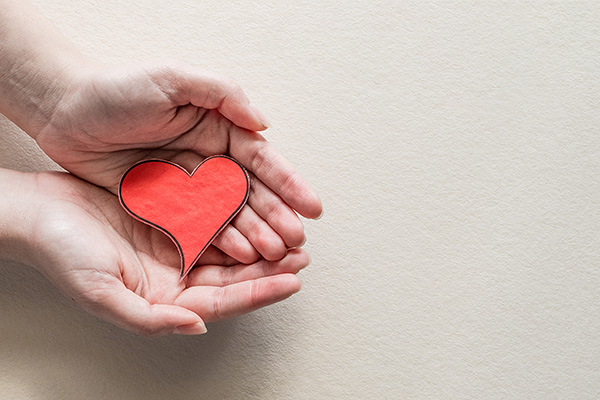
Think of that exercise period. When we move, blood pumps everywhere. When we are just sitting, it’s stagnant. Our bodies weren’t meant to just be stagnant. We need energy and we need blood moving. That’s definitely one thing. The heart is pumping. It is the main center to pump all the blood to all the different parts of the body.
The math piece in the heart and the breathing is so interesting because if you become overwhelmed, the Math seems to be one of those things that kids do get overwhelmed. You hear it’s so much more with Math than in other topics that they are intimidated by kids whose Math comes easily to them. When you stop breathing and you stop staying calm, throw this whole lesson out the window because you can’t focus. That’s such a great way of looking at it.
You can look up HeartMath online and they have exercises right there. It’s a great program.
Alysha?
I’m always on the spiritual side of things and one of the most powerful things that I ever learned was that somehow we choose everything that has happened in our life. We can even look at these amazing kids, whether it was to share lessons with others or whatnot. In this conversation of looking at, it sounds like they are incredible empaths. Karen, you and I had this conversation, whereas an empath, you need to protect your energy. You can visualize putting a little bubble around yourself. I’m curious, has anybody tried bringing that little image to them to be like, “If I bring a little bubble around myself, maybe I won’t take on as much.” That’s just my little spiritual take on that.
I’m like, “Why didn’t I think of that?” It is so great because these kids naturally do that. They go into their own world sometimes because the world is so overwhelming. I want to tell you a story because you said empaths. Kids are choosing their parents or the lessons. I tend to think kids choose who they want to be born into this world with but that’s just my belief. I’m glad mine chose me. Both of them are empaths definitely. Most kids that have those sensitivities are. More and more kids are born having these amazing connected traits.
My little guy, when we were living in Argentina we were in the living room, he started having a fit. He’s so upset and we were getting ready to leave. I’m like, “What is going on?” Sometimes, we don’t always understand what’s going on with our kids. I’m telling the story because it’s so important to understand the levels of depth since you brought up the empathic. Finally, he got out. I’m surprised that he got out and he said, “Tell him to go away.” I said, “Tell who?” He said, “That man.” My little son saw someone in the living room. At that point, I’m sure a lot of parents will be like, “You don’t see anything.” You dismiss what they were feeling or seeing.
I told my son, “You get out. You are scaring my son. You leave.” I said, “Is he gone?” I trusted what my child was saying. It’s so important to be in their shoes, empathize and be open to whatever they are seeing and feeling. We’ve got into the car and we were leaving and he said, “He’s out front of the door.” I don’t know what he saw that day but these kids are special. A lot of them do have abilities that we may not always understand. Sometimes as they get older, these abilities enter in and they forget about them. It’s important to acknowledge these younger kids, their sensitivities and connections that we may not always understand.
Especially because you say that they and I know for my daughter, take on and absorb a lot of emotions around them. Alysha and Elizabeth, my daughter too, used to talk to someone in our home when she was three. She would say, “He’s not letting me leave my room.” I’m like, “Who’s not letting you leave your room?” She would say, “He wants to play with me.” It’s the same thing and I’ve got spooked by it at first. I’m like, “What are you talking about?”
I did go to someone here in Chicago at the Ruby Room who’s an empath and she said, “Acknowledge it. Talk and say leave. Empower your daughter to have the courage to tell that spirit or whatever she’s seeing to leave if it’s bothering her.” It is about creating that bubble. I used to buy her bracelets and give her stones, protection and all these things, thinking that would help. It’s about empowering them and being open to what it is they are experiencing and not being ashamed of it but at the same time, understanding what it is and helping them navigate through that.
I’m curious about that. As an occupational therapist, do you think that children are trying to decipher millions of thoughts that run through our minds every day that we do talk to ourselves? Is that part of what they are trying to develop, these emotions and express them differently?
There are gifts within the challenges. Share on XEmotional regulation doesn’t come until our twenties. We always want our kids to have to control their emotions but that part of the brain does not develop until much later. Think of this crazy world. As an adult, sometimes, it’s hard to figure out. Let alone these little kids who are coming into this world trying to figure everything out and press it all. There is a thing called pruning. For the first 1.5 years, the amount of growth in our brain doubles and it’s fast, and then it’s called pruning where connections that we don’t need or don’t use are pruned away so we can process less and it’s more organized. For some kids, that doesn’t happen. That’s one of the things that they look out for. With autism, it’s not pruning. They are continuing to take in everything. Even as adults, are you not still trying to figure that out about ourselves and our passions in the world?
Their minds are everywhere. It’s important to accept, support and help through that while taking care of yourself. When I read your bio, you also deal with cognitive behavioral therapy. I have done that and I find that life-changing. Acceptance and Commitment Therapy, ACT and mindfulness-based practices. You do help both the child and the parent. Do you work with young adults as well? Once you hit eighteen, does it stop or do you continue with young adults?
There are so many things I want to do. A colleague of mine and I started a team group because for me, as an adult, I wish I had these things when I was a teenager or early adult so I wouldn’t have to go back and be doing these things now. I could be in a better place for my kids because I would have already worked on a lot of the stuff that had come up when I had kids that I realized I had to work through. I would have had a head start on some of those lessons. I would love to do something for young adults. I’m focused on a nine-step program for parents but I definitely would love to put that on as another thing that I would love to do. As young adults are finding their place in the world, their passion and purpose to have someone to help them pull that out, get solid and ground would be a wonderful thing. I would love to do that someday.
What you are doing for younger children definitely can carry over. I know with my daughter, even just sticky pads and putting little sticky notes to remind her of different things. A planner helps. Setting alarms on her phone definitely helps and of course, all the mindfulness that she has been taught. It could be used for anybody. If our readers would like to reach out to you for your services, how can they do that?
My website ElizabethJoyShaffer.com is the easiest. You can see where to connect. Also my email, [email protected]. I’m happy to connect because that’s what I’m here for. I love sharing information and I love helping. That’s what I do. Life should be easier and more fun. That’s my biggest thing. If I can help others to get to that point, then I’m happy to do that.
Your number one tip for parents would be if you were to pick one?
Breathe and laugh are the two things.
Thank you for sharing all of your tips, tricks and methods in our discussion on helping parents as well as children to navigate through this process. We appreciate and are grateful to you, Dr. Elizabeth Shaffer. Thank you for joining us on Grateful Goddesses.
Thank you for having me.
—
You are in such a unique position that you are raising your kids all over the world and you have moved around. You mentioned they have been to five different schools and you have lived everywhere. I’m sure you see real differences in theories and approaches to education in all of these places. You did mention that you particularly love the IB system and the pre-IB, the middle school in the lower school approaches to the IB curriculum. Do you feel like one area of the world has it right in terms of how they approach, not just kids with learning differences or special needs but the whole approach to education?
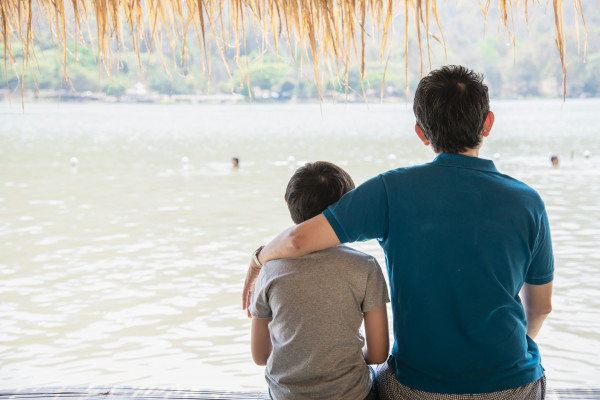
The Finnish model, when I was in Romania, I had a chance to tour and work with the Finnish school that was there. The Finnish educational system has always been in the top ten for years and they don’t even teach reading and writing to kids who are seven. They work on those early play like fine motor and gross motor, those pre-skills because our hands don’t even develop with the muscles to write until we are 6 or 7. We push things too early. Some kids aren’t ready because we think, “The earlier we do it, the better.” The tests show that in the Finnish model, in the beginning, their kids are a little further back because they haven’t started reading or writing until the 1st or 2nd grade but they are always well ahead of when it comes to high school with the grades. They are more well-rounded with social skills and play skills. To me, the Finnish model definitely is the best.
That’s fascinating to me because that helps kids who may have ADHD or some special learning differences in the way that they approach education.
They look at the whole child. It’s not just the academics. For a lot of these kids with ADHD, there are a lot of different parts to it. If they have more opportunities to get that time to grow on their attention scales, gross motor and fine motor, it’s going to be easier later on for them. It helps on many different levels.
Do you know about the Reggio Method in Italy?
I have heard of that.
That’s play-based. As a preschool teacher, I try to incorporate that. It’s process learning. It’s not about the product. Whatever it is they are doing, it’s also bringing the outside in so it’s bringing nature in. I heard you say that you went on a walk with your kids. It’s the kind of thing where instead of playing with colorful, interlocking cubes that are shiny and plastic, they work with bottle caps, sticks, rocks and shells. You put all those things out on the table with maybe containers and then see what they do with it. I know with my kids when they were little, they would rather play with the remote control or a cardboard box than a shiny new toy.
There’s a school called the Forest School, which reminds me of that. There are more and more of them popping up.
In Sweden and that’s the same thing. Everything is taught outside with nature. Math is counting rocks. I love that.
It’s our society pushing, especially in North American culture. You teach for the test. I taught first grade and it was taught for the test and I hated it. We have put our kids in little cubicles so that they would get used to that feeling of being in the cubicle to take the test. I didn’t like that but I had to do it because you want them to be prepared to take a test. It’s dealing with the stress of taking the test first. You can imagine a six-year-old and how stressed they were and the parents as well. We have a lot to learn. Lara?
I wanted to ask, can you repeat the acronym with STOP? You mentioned that at the beginning. It was great.
That’s not one of my favorite things. It’s always what I teach first. The first is to Stop. How much do we stop during the day? We are going from this and we are going to that. We never stop. The T is Take a Breath. I usually say three breaths. How deep do you want to go, 4-count, 6-count or 8-count. The O is to Observe your surroundings, what you smell, see and feel. If you are sitting, feel the chair around you. Observe sensory-wise but also emotionally. How are you feeling? Are you tired? Are you energetic? Are you feeling a little sad? How are you feeling emotionally? Check-in and then the P is Perceive. I love doing this, especially I see in transitions when we are going from one thing to the next to stop and check in with ourselves.
Children learn more what we do more than what we say. Share on XI want to add one thing. I love how you created the Grateful Goddesses because I feel that having a tribe is so important. When we were saying about the oxygen mask, I have lived in seven different countries in ways that you get to that you can grow with is so important for women. I’m so ecstatic that you have created this because more tribes need to be formed of women who can feel in a safe space where they can grow and learn together. It is important especially as moms. We tend to forget our friends and we focus on our kids. We don’t have that connection and we lose that connection. It’s so important for moms to keep a tribe and connections.
I have a group text called The Goddesses and it started just to list when the episodes are airing when to come on and all that stuff. Now, we are texting each other. I hope you don’t mind, Alyssa. Her son put out a new song and she posted that. Is that okay that I said that?
Of course.
He put out a song. We talk about things like, “I’m tired,” and all different things to share. It’s great to do that. However, you are doing that in your life. Especially with technology, you meet on Zoom with your friends if you are in lockdown and send out these group texts. Join us on GG TV on Wednesday nights because you are going to be coming on to help us to go through some actionable steps that we can do to move forward. I definitely thank you. Alysha was talking about being here and talking about all of these things and listening to each other’s perspectives. It’s helpful.
—
Here we are on Favorite Things for Grateful Goddesses with our guest, Dr. Elizabeth Joy Shaffer. We are going to be talking about things that bring us joy and happiness, replenish us and help us feel grounded. I mentioned my workouts. I love doing my Glow Fit workout and I love running as well. I do have aches and pains so I’ve got one of the instant refreshing gels that I love to smooth onto the back of my neck. I’ve got this once when I had a massage and she put this on me. It’s cooling. It’s like a rub. There are lots of different Blue Rubs out there. You can put it on your temples. Every night, I put it on the back of my neck, my knees and my lower back. I fall into dreamland with a cool hug. That’s something that I like to use. Alyssa, what did you bring?
Speaking of that, I have one of those heat pads as I sit here on my neck because I have so many aches and pains like you, Karen. I know I have talked about those in the past. In honor of Elizabeth, when my kids were young, I loved finding content, whether it was movies or television shows that they saw as entertainment and as educational that we were sneaking in. I found the show but I’m not even watching it with my kids as they are grown and flown. I have been watching a show on Hulu with my husband. It was on a couple of years ago and it has since been canceled but it’s great. It’s called Timeless. I don’t know if anyone has heard of it. It is a time travel concept where these three characters are going back in time to stop some big plot against America kind of thing.
What I love is the education about history that comes with it. They go back to Nazi Germany and they go back to the Wild West. They bring in all these famous people from those places like Josephine Baker, Harry Houdini, Ernest Hemingway and Eliot Ness. They were in Chicago with all the Al Capone thing. I thought, “How amazing if you have probably middle schoolers or pre-teens using that as a leaping-off point to talk about the history and they are getting it, whether they know it or not?” I love these sneaky ways to educate our kids. I’m also a bit of a history nerd. I love it and I highly recommend it. I’m watching it on Hulu.
You are sneaking into the education in history. I used to sneak broccoli and zucchini into brownies.
I did that, too. Anything sneaky, I was all about it.
Anything to get them to eat the vegetables for sure. Lara, what did you bring?
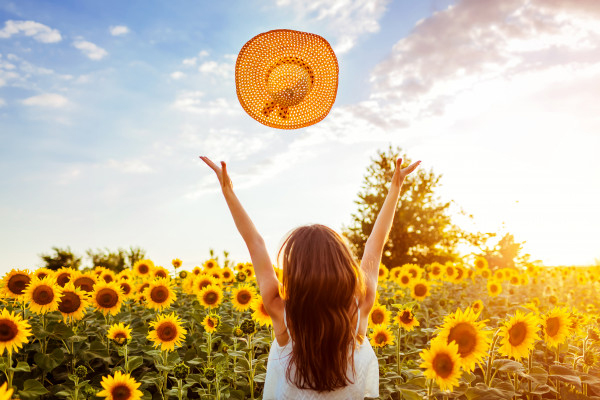
It’s my silk sleep mask. Especially at the time of year when we have gone through the time change and the light is coming through the blinds, I use it as a little switch that I put my mask on and I go into my zone and I’m so excited about my sleep. I’m going to think about the STOP and use that and pair it with my sleep mask. I highly recommend a silk sleep mask. It’s the best one I have ever found because of the material and it helps me with my sleep.
You will have to share what it’s called and I can put it on the site because I have several sleep masks and they fall off so I’ve got to definitely get a good one.
Even if it’s fallen off in the middle of the night, I always put it back on. It helps me get a longer sleep.
I have used it for meditation, too.
That’s a good idea.
Alysha, what did you bring?
I missed the favorite thing on self-care. I brought a little more nostalgic favorite thing. It does make me happy. It’s a little crystal golf bag that my mom gave me after my dad passed away. He was an avid golfer so it’s a little reminder. I have lost both my parents. When you have pictures and things like that but even when you can just look at something, then it brings back that connection.
It’s funny you say that. I have this little crystal Canadian flag in Amethyst. My son gave this to me. He is living in Canada. This was one of his favorite stones and I have it on my desk. These types of little trinkets remind you of people that have made you happier and continue to make you happy that’s beautiful. Elizabeth, what did you bring?
I will tie it into self-care. This is a tree. I have been drawing this since high school and I love the colors. I did this for an art exhibition in high school, and then I drew a mural in the college of this in our dorm. This little tree has gone with me everywhere. I love the colors. I swear it’s my thing. I would see that self-care, I had a chance to do therapeutic art. I usually join an international women’s group because when you move so much, you have to find your tribe somehow. I’m doing these groups to meet other women. One of the ladies did an art class. In her attic, the four of us in two hours, would get colors and put them on this piece of paper and we would draw.

It was amazing how much we connected to ourselves and connected through the painting. It was awesome. I wanted to show you the tree because it was something I love that has always been part of me. I want to show you one of the things I painted when I was in this group, which will relate to the goddesses. You don’t paint something. You are just letting your hands move. I’m not a green and brown person but does it ever remind you of a woman in nature like Mother Earth? You just let your hands go and move. You have no pre-thought of what to do. It flows out.
I saw a figure being grounded. The tree reminds me of roots that you grounded on the ground but you are also reaching for the heavens. That’s what we do in Grateful Goddesses. We definitely remind ourselves of being present and being grounded but also expanding out and getting out of that box that society can sometimes put us in trying new things. Thank you for sharing your favorite things with us. Enjoy your day.
Important Links:
- Elizabeth Joy Shaffer
- Glow Fit by Lara
- HeartMath
- [email protected]
- GG TV
- Blue Rubs
- www.TherapyIntl.com
- https://www.LinkedIn.com/in/elizabethshaffertherapist/
- https://www.Facebook.com/beth.millershaffer
- https://www.Facebook.com/therapyintl
- @ElizabethJoyShaffer – Instagram
About Dr. Elizabeth Shaffer
 Occupational Therapist | Parent & Child Wellbeing Educator | Autism Spectrum – ADHD – Highly Sensitive Child Specialist
Occupational Therapist | Parent & Child Wellbeing Educator | Autism Spectrum – ADHD – Highly Sensitive Child Specialist
Elizabeth is a mother, therapist, and advocate for children with neurodiversity. Her passion is helping parents and children through her programs which combine traditional (Western) and ancient (Eastern) practices in a playful and sustainable way to promote well-being. She loves sharing the life lessons learned as a mother and foreign service spouse living in seven different countries.
I Believe…
Education and information can change lives
One must think outside of the box when it comes to supporting the children who will never conform to living within the confinements of a box.
Love has the power to heal, to calm, to change, and to unite.
“Thinking outside of the box and loving ourselves and others unconditionally can change the world.”
